Issue 149 : 24 March 2024
Talofa Lava, Kia Orana, Malo E Leilei, Tena Koutou, Hello ...
... and welcome to the latest issue of “For The Love Of The Game”, the official e-zine of the New Zealand Amateur Sport Association Inc., founded in Wellington, New Zealand in 2017.
If you have any feedback on this issue, ideas for future articles, or would like to contact the Editor, please click here. And, you are invited to forward the e-zine to others you know, who may be interested in reading it. An archive of earlier editions of the e-zine can be found here.
For those who follow Twitter, you can also follow the Association, @AmateurSportNZ. If you are interested in applying for membership of the Association, please click here.
"Integrity In Community Sport" – An Important New Report ...
The 2023 National Sport Club Survey produced valuable insights into how threats to integrity are perceived and dealt with in New Zealand’s sporting communities, with Association Board Member Dr. Mel Johnston and former Association Board Member Dr. Michael Naylor both making a significant contribution to the resulting report which is being published this week.

(The report was funded by the ITP to assist with its future planning)
In return for funding from the “Sport and Recreation Integrity Transition Programme” (the Government organisation tasked with establishing the forthcoming Integrity Sport and Recreation Commission), the 2023 National Sport Club Survey included questions about "integrity" from the perspective of grassroots sport clubs.

(Planning for the 2024 survey is now underway)
Key findings from the survey included: over half (56 per cent) of clubs surveyed felt their committee was well prepared to deal with integrity issues; 22 per cent of clubs have used information from or support from their national body (NSO) to help address an integrity issue; and 34 per cent of clubs are aware of the Sport and Recreation Complaints and Mediation Service – (a function that will transfer to the new Commission).
You can download and read the full report, here.
Football Governance Bill Introduced To UK Parliament ...
A proposal to create English independent football regulator (IFR) to, “operate a licensing regime, and to monitor and enforce compliance with requirements on financial regulation, club ownership and directors, fan engagement and club heritage protection”, has received a mixed response from those responsible for the game at the grassroots.

(There are fears regulation will compromise the community independence of clubs)
For example, there are reported concerns that that the proposed legislation extends beyond the intended scope of administrative oversight, “challenging the essence of the game’s existence and for whom it is truly meant.”
As the Chair of one community football club has noted, “in an era when traditional identifiers are frequently under scrutiny or tainted by controversy, football stands out as a powerful emblem of communal identity. Expressing faith, political allegiance or national pride has become increasingly complex, given the challenges of scandal, ineptitude or extremism other institutions have faced.” There are concerns that regulation may act as a constraint on the ability of clubs to be platforms for social expression which are representative of their local communities.
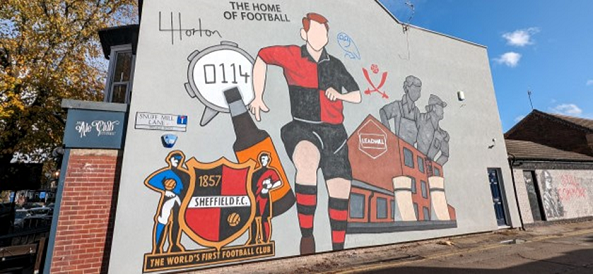
(English football clubs continue to have strong community based support)
You can read more here.
Annual General Meeting Reminder ...
A reminder that the 2024 Annual General Meeting of the Association will be held on Tuesday, 23 April 2024 at 5.30pm in Wellington. All members and supporters of the Association are welcome to attend the meeting, either in person, or via ZOOM.
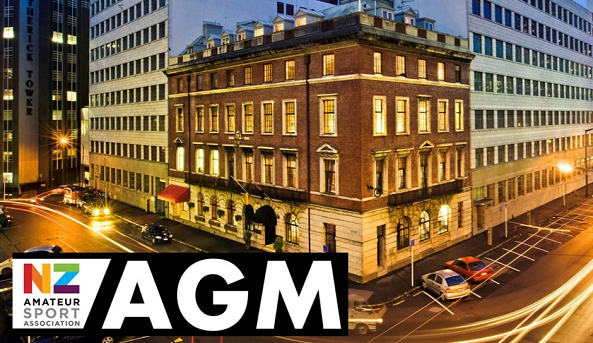
(The eighth Association AGM takes place on 23 April 2024)
The draft notice of the meeting, (in accordance with cl. 7.2 of the Association’s Constitution) to be approved by the Association’s Board at its final meeting for the 2023/24 financial year next week, can be found here and will be sent to all Association Members over Easter Weekend.
Viewpoint : “The Value Of Community Sport Festivals” ...
“Races for the swift, wrestling for the strong, and dancing for the light-footed” for men, women and children, all featured in annual St. Patrick’s Day Sports events throughout New Zealand from the 1870’s, with local sport associations formed throughout the country to honour St. Patrick and mark, “the good fellowship he might have desired.”
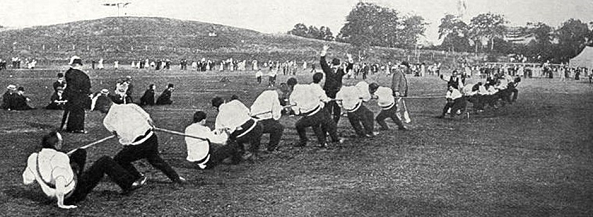
(Community sport festivals created social bonds and well-being)
Many St. Patrick’s Day sport events were arranged and organised through local branches of the Hibernian Catholic Benefit Society which was initially established on the West Coast of New Zealand in 1869. The objects of this society were based upon Catholic principles with political matters rigidly excluded, the aim being, “to promote the well-being of its members morally, socially, and intellectually.” Today, few remnants of this formerly important way of bringing communities together in sport annually survive, although many sport clubs nationally continue to operate based on their religious, ethnic or cultural histories.

(St. Patrick's Day sport festivals offered something for everyone)
As the Timaru Herald wrote in 1910, “all across the world, and up or down, down to our small South Canterbury town, we honour St. Patrick on his day and … we set it apart for the celebration of our annual sports.” In an era when many communities are fractured rather than united, the opportunity to create new social connections through sport (of any type), under an apolitical banner (such as that of the Hibernians of old), might help build bridges sorely needed.
“Old-Fashioned Hard Work” & “Love For The Game” ...
Basketball and netball have both received a boost in the Horowhenua-Kapiti region with the incorporation of the Rongomau Club a year ago. Since then, as recently reported in the Horowhenua Chronicle, the club has created five senior netball teams and the same number of basketball teams, based on “old-fashioned hard work and love for the game”.
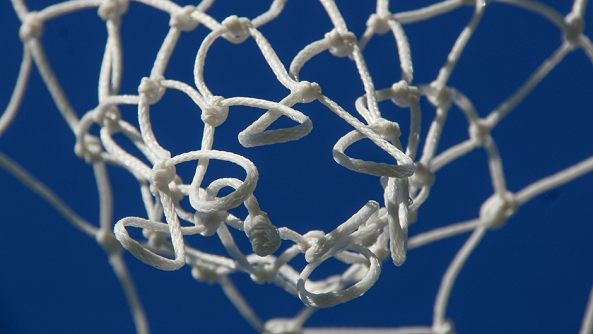
(Levin's Rongomau Club offers basketball and netball to the community)
As key objectives, the Constitution of the newly formed club offers “support and opportunities in sport” in the Horowhenua District, for “all standards of ability”. Rongomau was initially founded as a sports and cultural club in 1962 and was re-established last year at the suggestion of the club’s founders, using the original club colours, logo and trophies.
Today, the club is one of 16 community clubs based in and around the townships of Levin, Otaki, Shannon and Foxton competing in the regional netball competition, as well as participating in the local basketball competition. You can read more about the club’s resurgence, here.
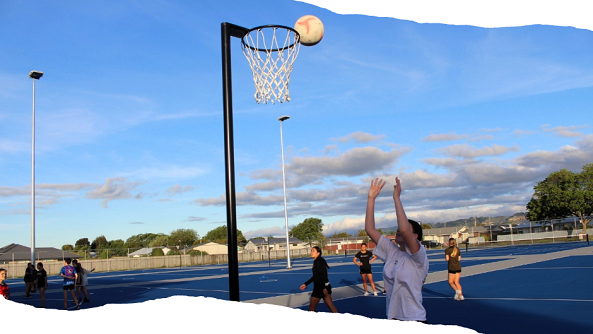
(Horowhenua boasts 16 netball clubs, while Levin hosts 10 local basketball teams)
If you have a story you would like to share with our national sport community about a club in your region or local community, feel free to contact the Editor by clicking here.
Discussion Continues With Responsible Ministers ...
The Association continues to be fully engaged with the Ministers of Commerce and Consumer Affairs (Andrew Bayly) and the Minister for Sport and Recreation (Chris Bishop) concerning its proposed amendments to the Incorporated Societies Act 2022.
A joint meeting with both Ministers is being scheduled to discuss how the necessary reforms might be able to be progressed in the current parliamentary term, for the benefit of all community sport organisations.
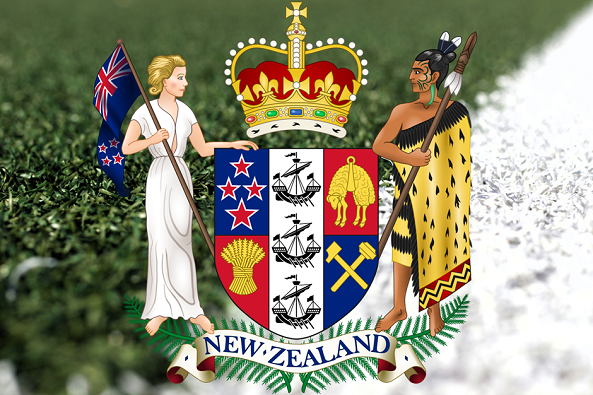
(A meeting with Ministers Bayly and Bishop is in the process of being coordinated)
Also, in the past week week, Community Networks Aotearoa met with the Minister for Social Development (Louise Upston) to reinforce the need for the Government to focus on legislative reform more broadly across the not-for-profit sector, to ease the regulatory burden on community volunteers.

(Together with Community Networks Aotearoa, we're pushing for reform in 2024)
From The Archives ...
IN THE SHEARING SHED
WANGANUI CHRONICLE, VOLUME LXXXI, ISSUE 18900, 28 DECEMBER 1923, PAGE 8
“It is usual for international heroes to make trial by combat in an arena, and in the presence of thousands. The athlete has his Olympiad, the fighting man his stadium. and the oarsman a river for his regatta. Higgins had a woolshed for a stage, and only his mates for an audience. Instead of press and cinema to bear witness to his ability, and to spread his reputation far and wide, his fame is in print only on the wall of his shed, and in stencilled lettering reads “W. Higgins, 406.” His real publicity agents are the shearing gangs of New Zealand.”
Born at Mangatainoka (near Pahiatua) on 2 January 1894, the son of William (Henry) and Bertha (nee Barlow) Higgins, William “Bill” Higgins was known as the “champion pacer in the woolsheds of the world”, with the ability to “strip the woolliest sheep to his buff in 28 seconds”.
He spent his early life on his parents' farm, and at the age of 13 began to work “on the shearing boards” in Waitotara. He spent several years working in the Waverley district, and on 12 February 1923, at the age of 29, he established his world record at Moumahaki, near Waverley.
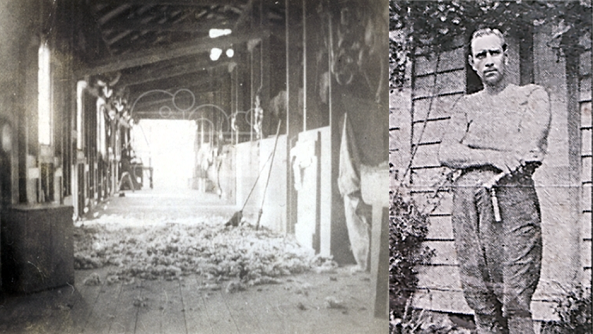
(William "Bill" Higgins, world champion shearer)
On that day, he shore 406 Romney-Lincoln ewes in nine hours. In the first run of two hours, 78 sheep were shorn. In the next four runs of one and three-quarter hours each he shore 80, 82, 85, and 81, respectively. In the final sprint, 10 sheep were finished in 10 minutes. It was said that Bill "finished as fresh as a daisy." (Two shearing combs were broken during the feat).
The previous year, in the same shed, he had shorn 383 in 8 hours 45 minutes. He had previously shorn 373 sheep at W. G. Moore's shearing shed, near Maxwelltown, in 8 hours 25 minutes, with Moore commenting that, "the faster he goes, the better he does them."
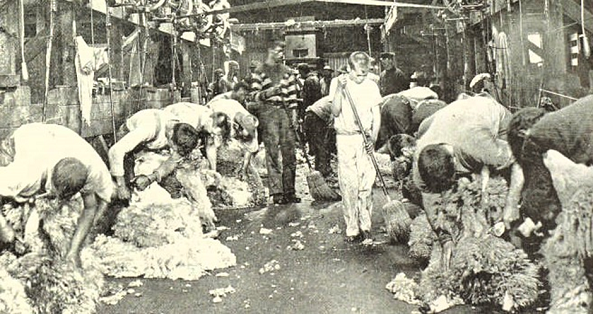
("The faster he goes, the better he does them ...")
Bill later moved to Wellington and was employed by the Wolseley Sheep Shearing Machine Company Limited, (London), becoming their travelling representative, a position he held until the time of his death. It was as representative of the company that he gave demonstrations which excited much admiration and comment in South Africa.
Bill married Mildred Alice Spinley (from Morrinsville) in 1917, with whom he raised two sons and three daughters. On Mildred’s death in 1931, he married Phoebe Matilda Crockett (from New Plymouth). Bill Higgins died at his residence at 379 Karaka Bay Road (near Seatoun), Wellington, on 1 October 1939, and he is buried in Wellington’s Karori cemetery.
The Final Word ...
“Sport does not exist in a vacuum and football clubs will always be powerful emblems of our communal identity.”
(Jason Stockwood, Chair, Grimsby Town Football Club)